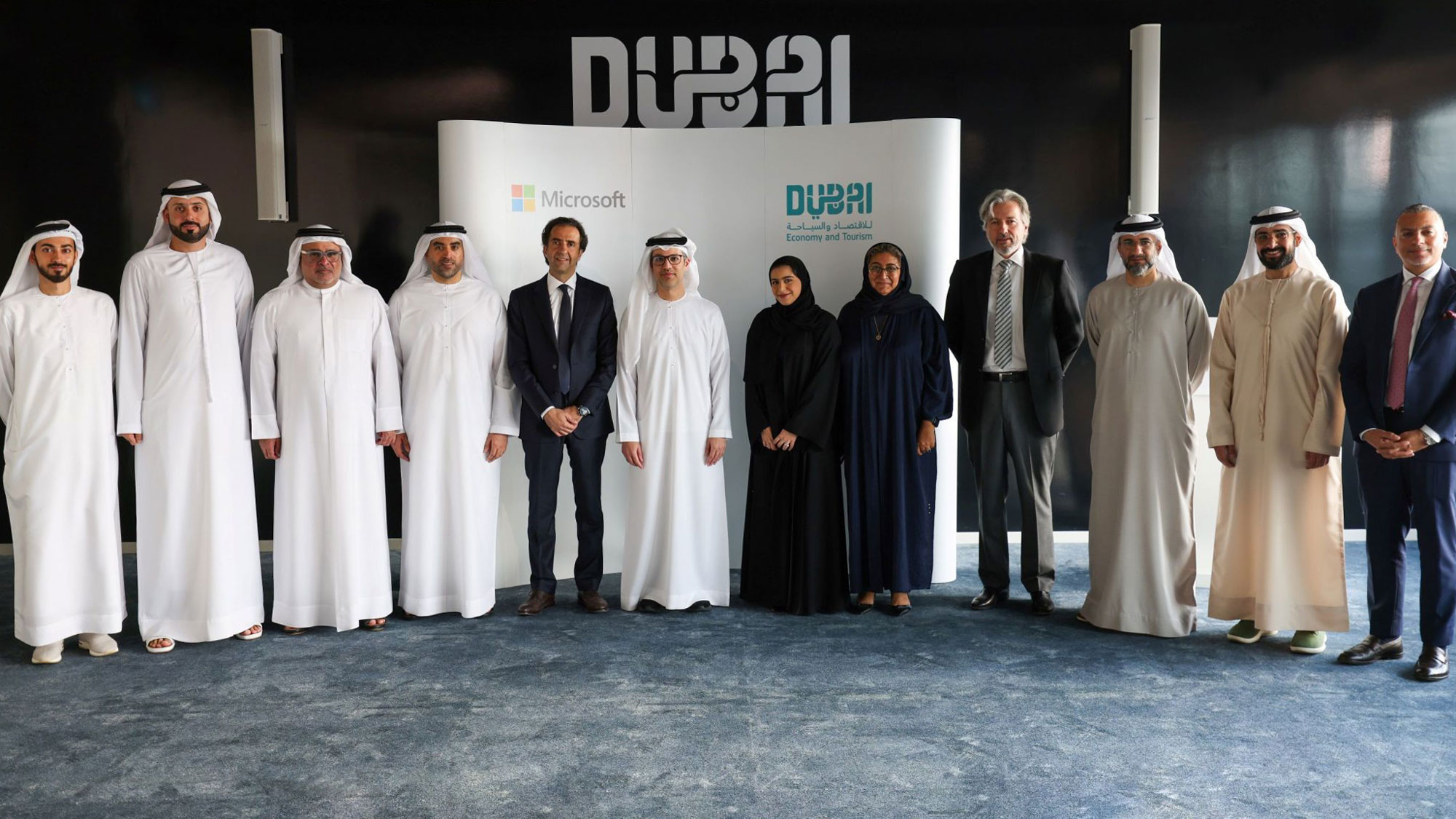



Dubai’s Department of Economy and Tourism (DET) and Microsoft, a multinational technology giant, have recently signed an agreement of intent to achieve the city’s digital transformation roadmap within the small and medium enterprises (SMEs), logistics, and education industries. This transformative collaboration represents a concerted effort to stimulate the expansion, innovation, and development of the emirate’s digital economy.
Strikingly, this partnership complements the newly launched ‘Dubai International Growth Initiative,’ a programme that emphasises Dubai’s ability to acknowledge the innumerable prospects available to SMEs. This article, as part of our ongoing discussion series, highlights how the latest alliance is also congruent with the overarching objectives outlined in the comprehensive ten-year Dubai Economic Agenda (D33).
Today we approved the Dubai Economic Agenda – D33, that aims to double the size of Dubai’s economy in the next decade and consolidate its position among the top three global cities. pic.twitter.com/7hMpEYgdRj
— HH Sheikh Mohammed (@HHShkMohd) January 4, 2023
In its steadfast commitment to engineer disruptive solutions and harness digital adoption, the strategic alliance between DET and Microsoft will accentuate the cultivation of smart solutions and applications in Dubai. Highlighting the city’s capacity to become a leading technology hub, Microsoft General Manager Naim Yazbeck said, “This planned collaboration represents a shared commitment to drive innovation, promote economic development and build a thriving knowledge-based ecosystem for the future.”
Concurrently, the Chief Executive Officer of the Dubai Economic Development Corporation (DEDC), Hadi Badri, underscored that the “landmark collaboration” showcases the emirate’s ability to foster robust public-private partnerships.
He further stated, “Aligned with the Dubai Economic Agenda, D33, our agreement with Microsoft is central to our proven development strategy in harnessing the strengths of global partners, facilitating economic growth through exceptional access to sector knowledge, technical expertise, and mentorship opportunities for key sectors.”
The CEO of DEDC also noted Microsoft’s dedication to Dubai, shown by establishing its regional headquarters nearly 25 years ago and selecting the emirate as the location for its first data centre in the Middle East. Notably, all of this has aided in the city’s digital advancement and laid the groundwork for the application of avant-garde technologies, such as artificial intelligence (AI).
The recent agreement between Dubai DET and Microsoft is instrumental in empowering SMEs, education, and the tech sectors, producing a watershed moment that drives digital innovation and commercial advancement. Through Microsoft’s technology solutions, SMEs gain efficiency and market expansion opportunities, fueling growth in the local business ecosystem. Undoubtedly, this alliance will catalyse the development and integration of digital infrastructure across industries, bolstering the 15 billion-dirham tech market.
Acknowledging the influence of the union, the emirate’s official communication platform, the Government of Dubai Media Office, wrote, “Microsoft will leverage its resources and expertise to facilitate access for technology start-ups and entrepreneurs and enhance the prospects of success and innovation.” They also noted that the transformative agreement will “facilitate the testing and marketing of new products and technologies and position Dubai as a global innovation hub.” As such, harnessing cutting-edge solutions, driven by the partnership with Microsoft, creates a ripple effect that extends towards the emirate’s education and logistics fields.
In line with this, the widespread digitalisation of education gives Dubai-based students access to state-of-the-art resources, preparing them for success in the digital hub and driving socio-economic development. This move is crucial as the field makes up the 5.8 billion-dirham education industry.
The 42.9 billion-dirham logistics field–which includes transport and storage sectors–also benefits from widespread promotion and utilisation of technology. Besides bolstering its gross domestic product (GDP), the newly formed deal will streamline operations and consequently cement its status as a global trade hub.
Without a doubt, the cascading effect shows the interconnectedness and catalytic nature of empowering industries.
By harnessing SMEs, logistics, and educational industries and embracing technological integration across sectors, Dubai will fortify its market expansion. Significantly, it creates a ripple effect on a variety of other projects it supports, initiatives it plans to build, and goals it seeks to accomplish. The partnership between DET and Microsoft will clearly reinforce Dubai’s global recognition and economic vitality.
Don’t forget to share this post!
We use cookies to enhance your experience on our website. If you continue using this website, we assume that you agree with these. Learn more.


